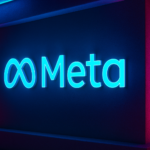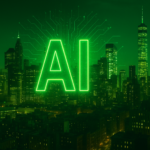Google (NASDAQ:GOOGL) has made a significant move in AI development by introducing its Private AI Compute system, a strategic shift aimed at handling data with enhanced privacy measures. This development allows Google’s Gemini models to process information in a cloud environment while ensuring user data stays isolated from Google’s own teams. Google’s initiative reflects current trends where privacy concerns are increasingly influencing technology infrastructures. The project highlights the company’s ongoing efforts to address data governance challenges and ease worries regarding third-party dependencies.
In similar past initiatives, technology firms like Apple (NASDAQ:AAPL) have developed solutions to handle sensitive processing, focusing on privacy and security. Apple’s Private Cloud Compute framework is one such example that permits data handling on secure servers, ensuring user data remains inaccessible even to the company itself. This movement towards private computing environments reflects the priorities of companies in enhancing user trust while balancing high-performance capabilities.
What Is the Significance of the New System?
Google’s approach aims to reconcile the long-standing compromise between on-device AI, which offers greater privacy, and cloud-based AI, known for scalability. By developing Private AI Compute, Google plans to leverage the capabilities of cloud models while safeguarding personal data. The technology reduces the need for data to be transferred across shared networks, initially benefiting consumer products such as Pixel devices.
“We built Private AI Compute to unlock the full speed and power of Gemini cloud models for AI experiences,” explains Google, emphasizing its commitment to data privacy.
The implication of this technology is vast, with the potential for extending its privacy-focused architecture into sectors that demand stringent data protection and compliance.
How Does This Address Regulatory Challenges?
Private AI Compute emerges in the context of increasing regulatory scrutiny, particularly from financial bodies concerned about the proliferation of generative AI and dependency on third-party services. The Financial Stability Board and the Bank for International Settlements have voiced concerns over risks associated with market correlations and cybersecurity. Although Google’s consumer rollouts do not directly confront these regulatory issues, it showcases an architecture that minimizes data exposure risks in potential future applications.
Google’s deployment decision demonstrates privacy as a pivotal factor in AI infrastructure, possibly setting the stage for its adoption in industries such as healthcare and finance. Through custom Tensor Processing Units, hardware isolation, and remote attestation, Google seeks to maintain secure data processing.
“Privacy-first computation is increasingly seen as a baseline requirement for systems handling personal data,” outlines Google, indicating future adaptability of their systems for various applications.
As the demand for AI-driven solutions grows, neoclouds like CoreWeave and Crusoe are also emerging as entities providing GPU-dense infrastructures critical for AI operations. The transition from training infrastructure to inference infrastructure forms the next significant layer in AI development, enabling rapid model response capabilities. Google’s Private AI Compute system appears well-positioned to contribute to this developing landscape by offering secure processing environments.
Thorough assessments of Google’s privacy architecture point to a broader acceptance of privacy-enhanced solutions, emphasizing how critical such measures have become in various sectors. It will be crucial for Google’s framework to deliver on privacy assurance while maintaining efficiency in AI model performance, reinforcing its relevance for industries relying on private data.










